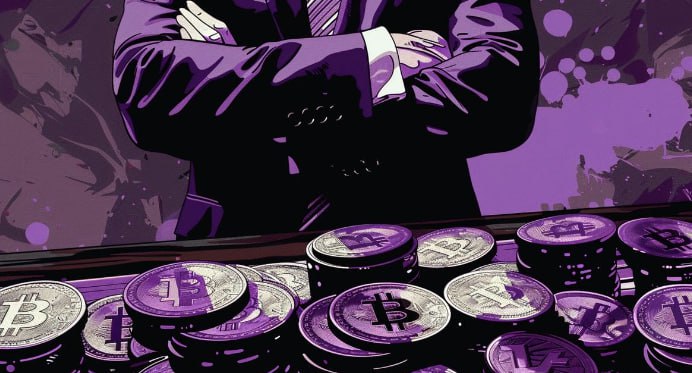2021-01-11 20:00:11
This Multibillion Bitcoin Dump By US Gov Could Be a Drop in the Bucket
The bitcoin (BTC) price has been a runaway train of late and there is seemingly nothing that can get in its way. Some believe that even if one of the largest BTC whales, the US Government, decides to sell its stash now worth billions of USD it wouldn't have a material effect on the market as BTC trading volumes more than doubled in a month.
As reported, in November, the US Department of Justice (DoJ) has forfeited BTC 69,370, worth over USD 1bn at the time. At the time of writing (07:59 UTC), it's worth more than USD 2.7bn, as BTC is trading at USD 39,629 after it briefly touched USD 42,000 yesterday.
The US government now controls the 6th richest BTC address (and the 4th richest if we exclude addresses controlled by crypto exchanges).
Meanwhile, the US Attorney’s Office for the Northern District of California recently filed a civil complaint for the forfeiture of those coins. If history is any indication, the bitcoins could be due to be sold in an auction by the US Marshals Service. That is what happened in 2014 and 2015 when the US government gained control of more than BTC 144,000 — worth USD 122m at the time and USD 5.7bn today — and sold them.
Indeed, auctioning off the bitcoins could be tempting for an incoming administration for whom the money spigot is poised to open wider as the pandemic tightens its grip on the economy.
A matter of ‘US national security‘
If the US government takes a similar track this time around, it is difficult to know how the market would react until it actually happens. However, Pierre Rochard, a Bitcoin strategist at the Kraken exchange, points out that the sale would be a drop in the bucket compared to the robust trading activity in the BTC market of late. Today, the 24-hour BTC trading volume stands at around USD 70bn (it was around USD 30bn on average in December).
“So I don't think a USD 3 billion auction would have a material effect,” Rochard told.
But he said he’s concerned about the bigger picture: “I think the auction would undermine US national security.”
In a recent post on GitHub, Rochard further noted,
“The expeditious auctioning off of seized bitcoin in 2014 and 2015 was, in my view and with the benefit of hindsight, a mistake. The Federal Reserve can create an infinite quantity of US dollars, the proceeds received in the auction. Bitcoins can not be created out of thin air and there is a limited quantity of them.”
As a result, Rochard explains that he is “lobbying for legislation to prevent the auction from happening, for United States national security reasons.”
One of the bills he is supporting is the Bitcoin HODL Act, which would allow the US Marshals Service to “securely keep and store bitcoin assets acquired through seizure until further legislation is passed, effective immediately.”
Instead, the BTC would be held in a custodial wallet that would be managed by the US Treasury without the threat of selling, swapping, auctioning, or otherwise encumbering the assets until more legislation is afoot.
The DoJ did not respond to our request for comment.
Meanwhile, Rachid Ajaja, CEO and Founder of AllianceBlock, recently said that it is unlikely that BTC whales - those who hold enough BTC to impact price - are going to be selling any time soon.
“Bitcoin is experiencing a supply shock at the moment, and miners can't keep up with demand. For this reason, it's unlikely that any whales will relinquish BTC liquidity until the price is closer to USD 100k+,” he said, adding that any crash we do see will not be as drastic as those that we have seen before thanks to increased network effects and institutional involvement.
18.8K views17:00






